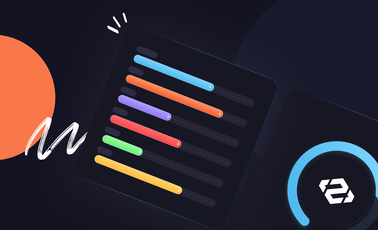No-Code as a Force for Good (1): Turning around Lives
Attributing lofty missions to emerging technologies is nothing new. We have all come across novel ideas that are supposed to transform this or revolutionize that. No-code platforms on their part have been associated with democratizing the app development and the software industry in general. For instance, the San Fransisco-based no-code platform Airtable has adopted democratization of software creation as its mission, but what does democratization involve and how can no-code platforms achieve that?
Here is what Gartner has to say on this trend:
“Democratization is focused on providing people with access to technical expertise (for example, ML, application development) or business domain expertise (for example, sales process, economic analysis) via a radically simplified experience and without requiring extensive and costly training.”
In short, democratization involves rendering technical expertise accessible to masses in a simple and efficient way. If there will ever be a development in the tech industry worthy of the epithet “revolution,” expanding the reach of software and letting people become app developers on their own right could be it. This approach could benefit underprivileged individuals all over the world.
Social mobility: The age-old chicken-egg problem
What is undemocratic about modern society mostly stems from the level of people’s access to educational resources. Once we understand what needs to be fixed, we can also understand how the transformative power of no-code can be of help.
Education is a powerful engine of social mobility and one of the most effective tools to contain and reverse the effects of poverty. However, we have a chicken-egg problem here. Our chances of getting a good education are highly predicated on wealth and good education creates more wealth in return. For example, almost 75% of the children of university-educated parents in the UK received university degrees, as opposed to just 20% of children from low-income families. The situation doesn’t seem to have got any better in the last half century: An OECD report published in 2018 found out that people born between 1955 and 1975 enjoyed high social mobility while later generations were not that fortunate, facing stagnant social mobility, which meant improving the quality of life was harder. Lower upward social mobility feeds higher income inequality. To the contrary, better education translates into higher salaries and a longer life expectation in OECD countries. Here is another striking and painful stat: The statistical model employed in the report predicts that it would take 9 to 11 generations for children of low-income families in Brasil, South Africa and Colombia to reach the mean income in their respective societies. That is almost three centuries. 300 years, just to reach the average income. It doesn’t have to be that way.
Educational equity instead of equality
This is where the concept of educational equity comes in. Unlike equality, which implies that everybody should have equal access to educational resources, educational equity focuses on equipping disadvantaged people with the tools to neutralize those disadvantages. It emphasizes the result, which is the net increase in quality of life, as opposed to equality, which focuses on the process itself. Not everybody will be able to attend Oxbridge or an Ivy League school, but people can be taught the skills needed to get them over the hump and improve their lifetime earnings potential. App building is one such skill and with no-code platforms lowering the entry barrier, it has become easier than ever.
What no-code platforms can fix for the society
In a world where there is insatiable appetite for software but not enough developers, no-code platforms can play a role in turning people with no coding background into app developers. Online courses offered by Makerpad, Appswithoutcode or No Code MBA give people a chance to acquire new skills, further their current careers or make the switch to completely new ones. In fact, it is not far-fetched to think that government-sponsored bootcamps will soon become quite common at a time when governments are looking for ways to stem rising youth unemployment rates. Additionally, no-code platforms could have a significant impact on the lives of developers in developing countries with degrees from middle of the pack schools. These people tend to be underemployed, unable to benefit from the increasing wages in the software industry and settle for much less due to linguistic, geographic or personal reasons. On the other hand, there are people out there who are in need of apps for their businesses but either are not aware of no-code or just intimidated by tech stuff. No-code platforms like Peaka can bring these two groups of people together. This arrangement can help developers monetize their skills in a way they could not before and solve problems for startups and SMBs that cannot afford elite developer talent.
When we launched Peaka, we envisioned that it would become more than a no-code platform. Peaka aims to give strength to the ongoing bottom-up change in the software industry, empowering regular people and bringing them onboard. We believe that this will open up new horizons for people and help turn around lives. There is infinite demand for software out there and a place-big or small-for anyone willing to take part in. All some people need is a helping hand. We hope that Peaka will be just that.




 Please
fill out this field
Please
fill out this field













